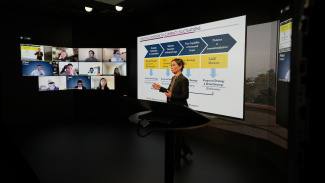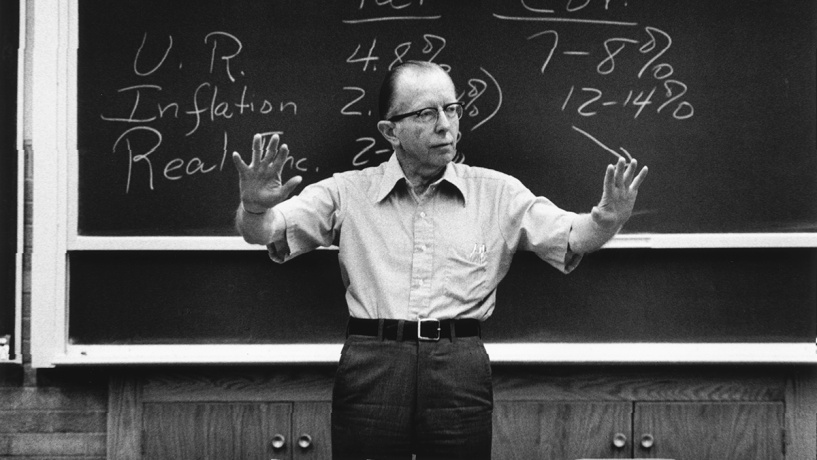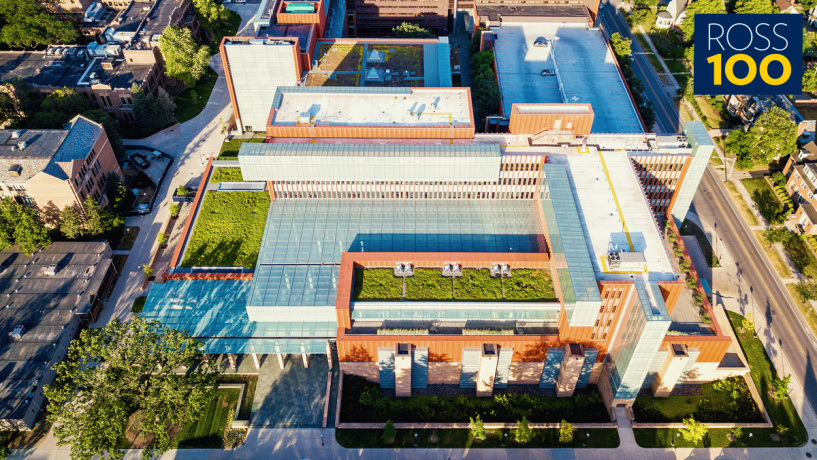Changing Degree Offerings Illustrate an Evolving Business Landscape

The University of Michigan Business School was founded to meet a compelling need in society — a need for leaders with an advanced business background. Starting with the school’s opening in 1924, that goal was achieved by offering a Master of Business Administration degree, which remains the flagship program.
Throughout the school’s history, however, as society’s needs have evolved, the school’s degree offerings have changed as well — adding and occasionally dropping degrees to reflect interest and demand from prospective students. Some of the more notable developments have included:
PhD
Although the MBA was conceived as a practical degree, from its earliest days, the school also valued an academic approach to business. As the school started to expand in the 1930s, the second degree it offered was a PhD. The PhD is still offered today, producing leading business scholars and researchers at top universities around the world.
Evening MBA
By the late 1930s, it was already clear that some working professionals who wanted to pursue an MBA would not be able to commit to a full-time academic program. Starting in 1938, the school offered MBA classes in Detroit to meet this demand.
In the following decades, the school added evening offerings in a number of other locations — Grand Rapids, Dearborn, Midland, and Flint, as well as Ann Arbor. By 1960, the Evening MBA Program numbered 370 students. It continued to offer a solution for working professionals until the 2020s.
Bachelor of Business Administration
In 1943, during the height of World War II, the Business School introduced a bachelor’s degree to complement its MBA offerings. The timing was perfect: As the war ended, the GI Bill sent military veterans flooding into the University of Michigan and other schools, and the BBA Program proved immediately popular. In 1944, total enrollment at the school had fallen to just over 200; by 1947, it had skyrocketed to more than 1,000. Today, the BBA Program — which remains the school’s largest — enrolls about 1,600 students.
Master of Accounting
The field of accounting received new emphasis starting in 1983, when a Master of Accounting was introduced as an add-on to the BBA Program. It became a stand-alone program in 1998, eventually growing into the third-largest program at the school.
Other MBA Formats
The popularity of the flexible Evening MBA Program throughout the decades led the school to expand its MBA offerings. In 1996, the school created the Global MBA Program to meet the specific needs of some international students.
The Executive MBA Program debuted in 2001, geared toward rising business professionals looking to take the next step in their careers. It has maintained robust enrollment since its introduction, eventually expanding to a second location in Los Angeles.
In 2010, Michigan Ross introduced a Weekend MBA Program. This popular format, with classes every other Friday and Saturday, year-round, enables students to complete an MBA in two years while still working.
Other One-Year’s Masters Programs
The Master of Accounting Program eventually paved the way for other specialized one-year master’s degrees. In 2009, classes began in the school’s Master of Supply Chain Management Program for students interested in becoming experts in this critical specialty.
In 2014, Michigan Ross introduced its Master of Management Program. This groundbreaking degree was specifically designed to provide a background in business for students who had recently earned a bachelor’s degree in a non-business discipline such as the liberal arts, sciences, or engineering. The quickly growing program numbers 146 students in the Class of 2024.
The newest degree offering at Ross is the Master of Business Analytics, for students who want to learn to use complex data to solve business challenges. Now in its second year, the MBAn Program includes 50 students.
Online MBA
In 2019, Ross launched its latest innovation in MBA education as it became the first top-ranked U.S. business school with an Online MBA Program. The program offers an interactive, collaborative experience through a mix of online learning and short in-person residencies. In 2023, the school stayed on the cutting edge as it introduced the Convatec Digital Learning Studio, a state-of-the-art facility used in the Online MBA Program as well as Executive Education offerings.
Sources: “Tradition, Vision, and Change: Business Education at the University of Michigan, 1900-2000”; “The University of Michigan: An Encyclopedic Survey”; Dividend magazine; original research.







